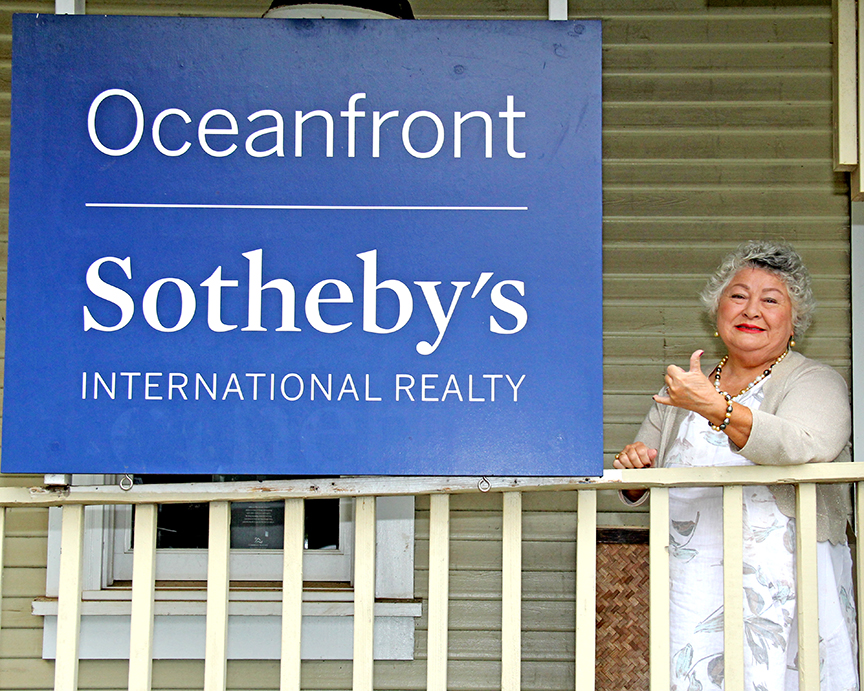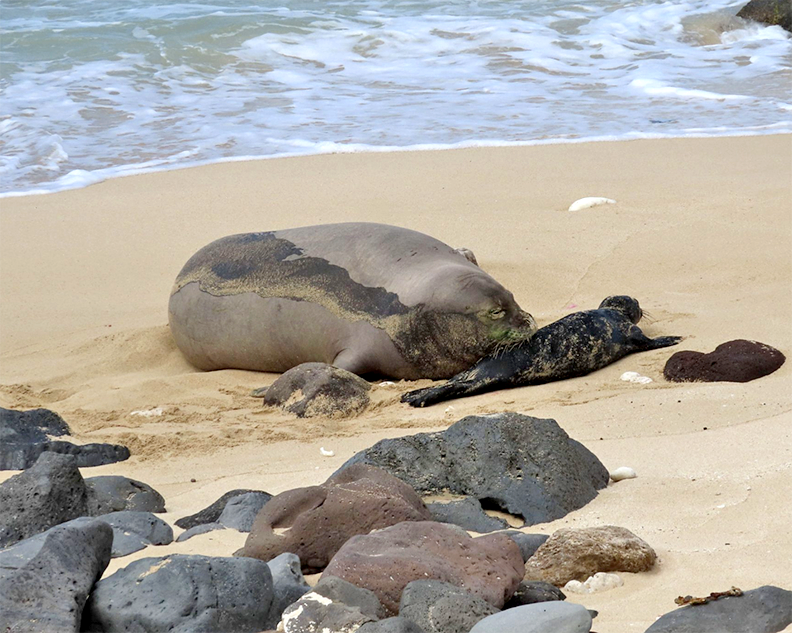By Léo Azambuja

National Tropical Botanical Garden Plant Extinction Prevention Specialist Steven Perlman doing research at Wailau, a remove valley on Molokai’s North Shore. Photo courtesy of Hank Oppenheimer
My take on Earth is that it has a collective mind. Our planet moves through space, orbiting around the sun as if it were a Portuguese man o’war, those pesky, floating, stinging organisms that wash ashore every summer in Hawai‘i.
The Portuguese man o’war’s venomous tentacles deliver a painful sting. Despite looking like a jellyfish, the Portuguese man o’ war is actually a siphonophore, a colonial organism made of specialized individual animals of the same species called zooids, or polyps. These polyps attach to each other and assimilate physiologically to the point they cannot survive independently. Hence, they have to work together and function like an individual to survive.
If you didn’t get the point yet, we humans need to work together to survive. But I don’t mean working together within communities, countries, or even with other humans. Yes, let’s do that, but more than anything, we have to work together with nature — whether it’s a living organism or a mineral — to guarantee our survival.
Even those who believe — erroneously, in my opinion — that humans are the crown jewel of creation, would have to acknowledge we did not evolve to who we are without the help of nature.
Humans are not the beginning or the end of planet Earth. We are actually a microscopic fraction of the 4.5 billion years this planet has been around. Even if we keep polluting the planet and ransacking its resources to exhaustion, the planet will still live. But the human race will certainly find its way to extinction.
This is no rocket science; it can actually be traced to history, one that we are living right now in this exact moment. Scientists, in their most conservative estimates, believe at least 150 species of animal and plants go extinct every day.
Well, we are only one species on this planet. Only one. By comparison, scientists have catalogued 1.3 million species, but estimate the planet is home to about 8.7 million species. On average, about 15,000 new species are discovered annually.
Again, we are only one species among millions of them. Yet, we have caused the biggest damage to this planet since an asteroid theoretically crash-landed here some 65 million years ago causing the largest mass extinction that we have knowledge.
There is no reason why we cannot live harmoniously with nature. Just look at sharks, the oceans’ apex predator. They have been around at least 400 million years, and yet they have caused no significant damage to the environment. We actually slaughter roughly 100 million sharks a year, and we may be taking them straight to extinction.
Or look at bacteria, much more predatory than sharks, killing millions of organisms every year. But if science got this right, bacteria are actually the main cause we and every other living being is around, since scientists believe they were the first life forms on Earth.

Léo Azambuja
Should we keep ignoring our human race getting away with murder? Should we just settle for less exploitation of irreplaceable resources, less poisoning of the sky, land and water, less animal cruelty? Or should we just join forces to stop all this altogether?
I think most of us know the answer, even if not all of us want to admit it. In my opinion, less was never enough, and now more than ever, less is not the answer. Moving forward with the thought the Earth and we are one, and halting all hurt to nature is the answer.
If the human race doesn’t take a stand soon, as a collective mind, to integrate into this planet as a single living organism, we will be expelled from it. Being that expelled is euphemism for extinction.
But as much as we may hurt Earth, this planet will rebound as soon as we are gone as a species.
Our time is ticking, pun intended, but we still have a choice.
Discover more from ForKauaiOnline
Subscribe to get the latest posts sent to your email.




Leave a Reply